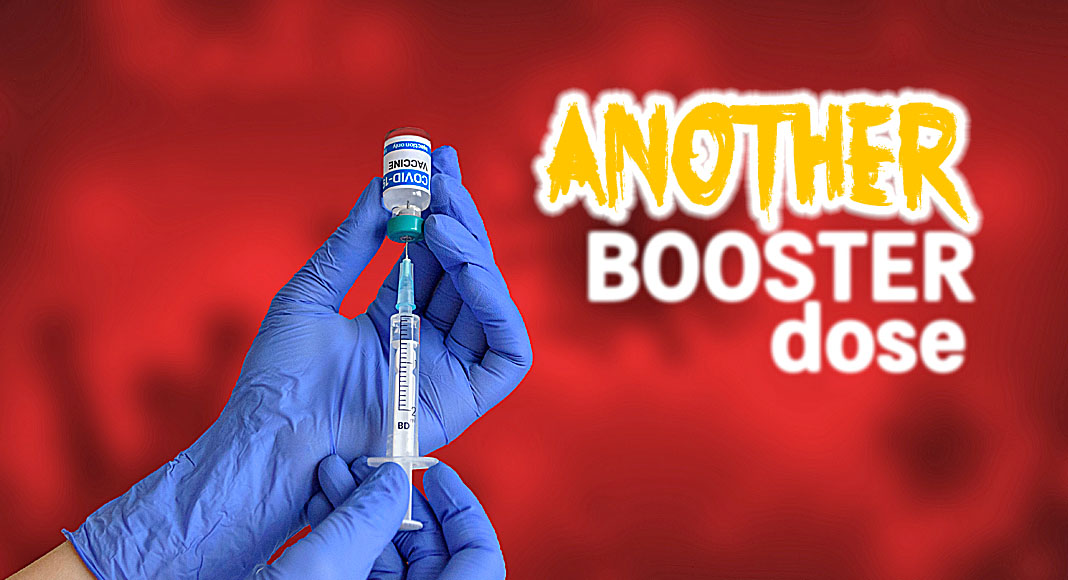
Mega Doctor News
by Michigan Medicine – University of Michigan
Newswise — More than 217 million people in the United States have rolled up their sleeves to be vaccinated against COVID-19, and 97 million of them have already gone back for a booster dose, or an additional dose if they have a weakened immune system. And now, adults over 50 and some teens are eligible for a second booster dose.
Those boosters proved especially helpful during the recent surge of the very contagious Omicron variant of the coronavirus that causes COVID-19.
Millions of Americans got sick during that Omicron surge, but those who were vaccinated, and especially those who were boosted, had strong protection against infection. Even if they got a “breakthrough” case, their vaccine kept most of them from developing severe disease.
In fact, people who had been boosted were 300% less likely to get infected by Omicron than unvaccinated people, and 60% less likely to get infected than vaccinated-but-not-boosted people. Boosted people had a 94% lower chance of being put on a ventilator or dying in a hospital than those who hadn’t been vaccinated.
That’s why, now that the surge is over, it’s important for unboosted adults and teens to get a booster dose after completion of their primary series, for vulnerable children over 5 and adults to get their additional dose, and for anyone who hasn’t started the vaccination process yet to start it now.
The Food and Drug Administration and the Centers for Disease Control and Prevention now put even more emphasis on booster doses of vaccine than ever before because they’re anticipating future surges and new variants of the virus.
SEE ALSO: Find a vaccine near you. Visit vaccines.gov. Text your zip code to 438829. Call 1-800-232-0233 (TTY 1-888-720-7489)
CDC now says that if someone’s eligible to get boosted, but are not yet boosted, they’re considered not “up to date” on vaccination.
Vaccinated people no longer have to wait as long as they used to before getting a booster.
Now, boosters can go in the arms of people over the age of 12 who had their second dose of Pfizer more than five months ago, people over age 18 who got a second dose of the Moderna vaccine more than five months ago, and people over 18 who got a Johnson & Johnson dose more than two months ago. The CDC recommends that people whose first vaccine dose was Johnson & Johnson should receive a Pfizer or Moderna booster. The new FDA approval of a second booster dose for all adults over 50, and immunocompromised young people over 12, states that the second booster can be given at least four months after the person’s first booster dose. The CDC has not yet made a recommendation regarding second booster doses.
The only people who can’t get boosters yet are children under the age of 5 (who aren’t eligible for any COVID-19 vaccine), and healthy children ages 5 to 11. (For immunocompromised children in this age group, a third dose is available, but it is considered part of their primary vaccine series, not a booster.)
Why are boosters needed?
Boosters started last summer, when the number of infections in vaccinated people, particularly those over age 65, began to concern researchers in both in the U.S. and abroad.
The vaccines appear to lose a bit of effectiveness over time, especially when the Delta variant became the predominant COVID-19 variant in the U.S. in late summer.
But even after months of boosting, one-third of people over 65 who qualify for a booster dose haven’t gotten one. And half of the booster-eligible population over age 12 hasn’t gotten boosted.
“Booster shots are not unique to COVID-19 vaccines. We are used to getting annual flu booster shots and boosters for Tdap (tetanus, diphtheria, and pertussis) every 10 years to help our bodies maintain a high level of immunity against vaccine-preventable diseases. We are now seeing more and more breakthrough COVID-19 infections in fully immunized people. People are not as well protected with the vaccines as they were before the emergence of the Delta and Omicron variants,” said Pamela Rockwell, D.O., FAAFP, a Michigan Medicine family physician and professor in the Department of Family Medicine at the University of Michigan Medical School.
Rockwell represents the American Academy of Family Physicians on the CDC’s Advisory Committee for Immunization Practices that makes official recommendations about the use of vaccines.
Booster shots will help prevent future infections, transmission of infections, missed work and disruption of education and activity due to COVID.
Boosters are especially important for people who have one or more underlying medical conditions like diabetes, obesity, heart disease, cancer, and asthma that put them at higher risk for severe disease from COVID. The highest risk for severe COVID-19 disease remains for those over 65 years.
Said Rockwell: “Everyone over age 12 should get a booster shot to help protect themselves not only from breakthrough infections, including the potential of a severe breakthrough COVID-19 infection, but also from the risk of long-haul COVID symptoms that can occur even if you only have a mild case of COVID. Vaccination will help stop the spread of COVID-19 in our communities and help protect others around us who may be more vulnerable to COVID-19 disease and bring us closer to an end to this awful pandemic.”
Additional COVID-19 vaccine doses for especially vulnerable people
Age or underlying medical conditions affect a person’s individual risks of COVID-19 and their body’s ability to respond to the vaccine.
Since last summer, the FDA and CDC have approved and recommended a third dose of mRNA COVID-19 vaccines as part of the primary vaccination series for moderately and severely immunocompromised people. This is considered different from a booster.
This third dose is now recommended for all moderately-severely immunocompromised people ages 5 and older. It can be given as soon as 28 days after receipt of the second dose of their primary mRNA vaccine series.
Then, three months later, people in this group should get a booster dose of vaccine. It used to be six months, but data about the power of boosters led to a shortening of the recommended time.
Then, four months later, they can receive a second booster under the FDA approval.
Other steps immunocompromised people should take against COVID-19
Vaccination is not all people in this group should do, even during this lull in the pandemic, Rockwell adds. They should keep an eye on the CDC’s new COVID-19 risk level in the county where they live, and any counties where they might travel to, and take precautions especially when a county is rated Medium or High.
“It’s important for immunocompromised people to wear masks in public, avoid crowds and poorly ventilated indoor spaces, especially if living in or visiting places with medium to high COVID community transmission levels and to encourage everyone over the age of 5 who interacts with them closely to get vaccinated if they aren’t already,” she said.
“They may not realize how much they are putting you at risk, or that your immunocompromised state puts you at high risk of severe COVID-19,” she added. “Ask them to help protect you.”
People in this group should also ask their health care provider if they might be eligible for medications that can be given before a COVID-19 infection, or in the early days of an infection, to protect them further.
While the overwhelming majority of people hospitalized for COVID-19 right now are unvaccinated adults and children, many of the rest of those in hospitals for COVID-19 care have a condition or take a medication that affects their immune system.
Who is considered moderately to severely immunocompromised?
If you or your child fall into one of the categories below as defined by the CDC as those individuals moderately-severely immunocompromised, contact your health provider or your child’s provider to see what they recommend:
- Been receiving active cancer treatment for tumors or cancers of the blood
- Received an organ transplant and are taking medicine to suppress the immune system
- Received a stem cell transplant within the last two years or are taking medicine to suppress the immune system
- Moderate or severe primary immunodeficiency (such as DiGeorge syndrome, Wiskott-Aldrich syndrome)
- Advanced or untreated HIV infection
- Active treatment with high-dose corticosteroids or other drugs that may suppress your immune response (>20 mg prednisone/day for at least two weeks)
What’s next?
The FDA and CDC continue to monitor how well vaccines and boosters are protecting people in the real world to try and make the best decisions possible to protect public health. Recommendations are subject to change as even more data is collected.
Rockwell encourages people who get any dose of COVID-19 vaccine to sign up for the CDC’s V-safe system which will text them occasionally to ask them to report any reactions to the vaccine. This will help collect data that will guide the vaccination process and look for any rare effects.
Ending the pandemic will take more than just vaccination, including booster doses. Until cases are brought under control, wearing masks in appropriate locations and settings, improving indoor ventilation and other public health measures will be needed to slow the spread of COVID-19 and prevent hospitalization.
However, getting shots to the 30% of the U.S. population who are not fully vaccinated and the 50% of the booster-eligible population that’s not boosted will go a long way to ending the current crisis and as such, remains a top priority for the CDC and other health professionals.









